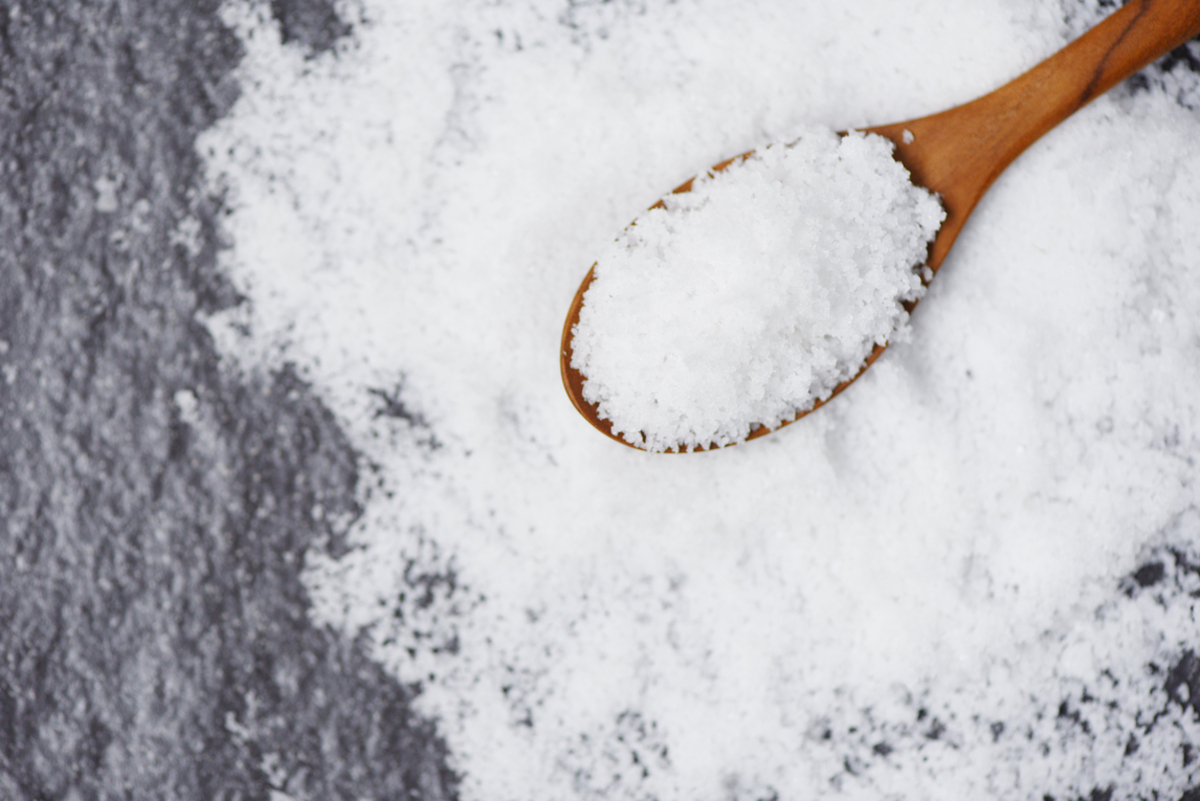Sodium is an essential mineral — your body really does need it. The levels of salt in our body are regulated by the kidneys, as salt helps control the body’s fluid balance. Additionally, sodium is necessary for nerve cell to nerve cell signaling as well as muscle function.

How does sodium affect my cardiovascular health?
When there are high levels of sodium in your blood stream, it can have several detrimental effects as it pulls water out from your cells and into your blood vessels. This causes the volume of blood in your body to go up, leading to an increase in blood pressure. It is similar to when you turn on your garden hose as the pressure is high because there is so much coming through it.
As time goes on, high blood pressure that results from high salt content can cause your blood pressure to stretch too much and cause injury, leading to a build-up of plaque that functions to block blood flow. Additionally, high blood pressure causes your heart to become exhausted as it has to work harder to pump more blood in the body. The extra water present in your body also makes you bloated.
Some people are more sensitive to the effects of salt compared to others. Studies have shown that specific factors can influence how your body and cardiovascular system react to high salt levels, including:
- How old you are. The older you are, the more sensitive you are to the effects of salt.
- How much you weigh. People who weigh more are more sensitive to the effects of salt.
- What your race and ethnicity is.
- What your gender is.
- Whether you have specific medical conditions, such as diabetes or chronic kidney disease.
There are several benefits to reducing your intake of sodium. Studies have found that even among people who don’t have high blood pressure, eating less sodium can stop the natural rise in blood pressure that occurs with age. Research also shows that this decreases your risk of:
- Heart attack
- Heart failure
- Stroke
- Kidney disease
- Osteoporosis
- Stomach cancer
- Headaches
Where does the sodium in my body come from?
The rest of the time, the sodium we get is naturally present in food or is added to food when we cook. Therefore, even if you never add table salt to your eggs in the morning, you are probably still getting way too much sodium. It’s important to check the packaging of your processed and restaurant food to see how much sodium these items contain. It can be hard to limit the amount of sodium you are getting from foods that you buy, but you can make active decisions to abstain from high-salt foods.
So how much sodium should I be consuming?
The answer to this question depends on your age:
- People between one and three years old should only get 800 mg of sodium
- People aged four to sex years years old should only get 1200 mg of sodium
- People between seven and 10 years old should get 2000 mg of sodium
- People aged 11 years and older should get 2500 mg of sodium
So, how much sodium is in table salt?
- A ¼ teaspoon of salt contains 575 mg of sodium
- In ½ teaspoon of salt, there is 1,150 mg of sodium
- One teaspoon of salt has 2,300 mg of sodium
The benefits of reducing sodium intake
Consuming less sodium comes with several benefits including reducing your risk of high blood pressure, decreasing bloating, and several other things. However, there are benefits at a greater scale.
One study showed that if Americans reduced their sodium intake to 1,500 mg/day, that would lead to a 25.6 percent reduction in blood pressure and lead to large amounts of health care savings. Furthermore, reducing sodium intake to 1,500 mg/day would reduce the amounts of deaths from cardiovascular disease from 500,000 to 1.2 million people over the next decade.
Some tips to reduce your salt intake
- Add less salt when you cook and don’t keep salt on your table to add in. Once you get used to the taste of food without the addition of salt, you can cut it out.
- You can add flavor to your food by adding herbs, garlic, and spices, which are also beneficial for heart health.
- Make sure to check the nutritional information for cooking sauces as they can be very high in salt.
- Eat out less.
- Instead of snacking on chips and salted nuts, try fruits and vegetable instead.
- Strazzullo, P., D’Elia, L., Kandala, N. B., & Cappuccio, F. P. (2009). Salt intake, stroke, and cardiovascular disease: meta-analysis of prospective studies. Bmj, 339, b4567
- He, F. J., & MacGregor, G. A. (2003). How far should salt intake be reduced?. Hypertension, 42(6), 1093-1099.
- Cobiac, L. J., Vos, T., & Veerman, J. L. (2010). Cost-effectiveness of interventions to reduce dietary salt intake. Heart, 96(23), 1920-1925.
- Photo courtesy of SteadyHealth


Your thoughts on this